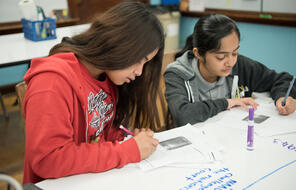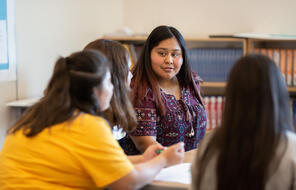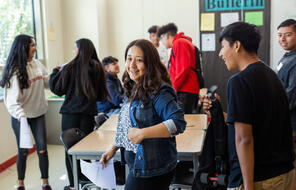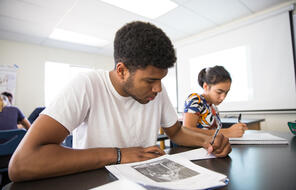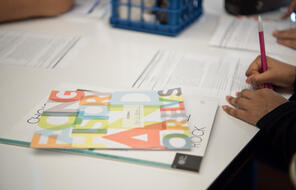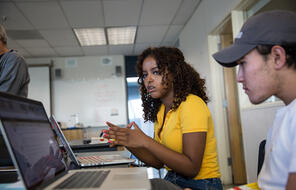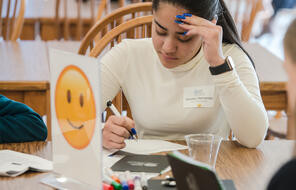Guide
Journal Prompts for a Coming-of-Age Unit
Explore a menu of journal prompts designed to support student reflection for a Coming-of-Age ELA unit.
At a Glance
Language
English — USSubject
- English & Language Arts
- Culture & Identity
Supporting Materials
The following Facing History journal prompts are designed to support student reflection for a Coming-of-Age unit. To help students feel safe and empowered, it is important that they always know before they write if they will be sharing their ideas, and they should always have the choice to keep what they write in their journals private.
Prompts to Explore What It Means to Come of Age
- What does it mean to grow up?
- When does a child become an adolescent? When does an adolescent become an adult?
- What makes you, you? What factors shape your identity?
- What factors impact your sense of who you are, especially at this point in your young adult life?
- How does an individual’s identity change or remain the same as they grow up?
- Why do you believe what you believe?
- In your family, community, or culture, what events or traditions mark the transition from childhood to adulthood? Do you think you actually become an adult on the day of that event or tradition?
- What are the internal and external factors that shape your identity? What aspects of your identity can you control, and which aspects are controlled by other people or your circumstances?
- Do you have one identity, or do you have many versions of yourself?
- How do you navigate multiple, and sometimes competing, aspects of your identity?
- What does it mean to belong to a place? What is the relationship between who you are and where you live?
Prompts to Explore Identity and Storytelling
- Who are you as a reader and writer? What text—book, story, poem, movie, song, podcast, vlog, blog, television show, etc.—has most influenced or inspired you and why?
- What is the relationship between identity and storytelling? What stories do you tell about yourself? What stories do others tell about you, as an individual and as a member of different groups?
- What kinds of stories do we tell about ourselves? What is the story of your family? What is the story of your community?
- Whose history is your history? Where do you see your history reflected in the stories that people write or tell? Where is your history missing from these stories?
- Where do you see yourself and your experiences in the stories that people write and tell? Where are you missing from these stories? What is the story that you want to tell the world?
- What does it mean to be a (insert label) ________ (boy, girl, gender-fluid person, immigrant, person with a disability, Latinx teenager, Jewish teenager, cisgender teenager, teenager in foster care, etc.)? How does it make you feel? Depending on how you feel, how can you embrace, rise above, or escape that label?
Prompts to Explore Fitting In and Staying True to Who We Are
- What does it mean to “fit in”? How do we learn what it means to fit in? What does it take—and what can it cost—to fit in? What are the consequences of not fitting in?
- How do you navigate the tension between your desire to fit in and your need to express your own individual identity?
- How do you respond to people who are different from you?
- How does the existence of “in” and “out” groups in your school or community impact how you make decisions and how you treat others?
- How can we belong to a group (of our own choosing or not) without losing our sense of individuality?
Prompts to Explore Relationships with Family and Friends
- What is the relationship between who you are, who others think you are, and who you will become?
- How do expectations from your family, friends, teachers, and other people in your life impact your sense of who you are?
- What makes for a good friendship or relationship? What can complicate or destroy a good friendship or relationship?
- What role do other people, such as your family and close friends, have in shaping your identity? What role does the media have in shaping your identity?
- How do your friendships impact your identity and the choices that you make?
- What, if anything, do you owe your family? What do you owe your friends? What do you owe yourself?
- What responsibility do you have to your family, friends, and community, and what responsibility do they have to you? How does the way you understand your responsibilities toward others change as you grow up?
- What role do you play in shaping your future? What roles do your family, friends, mentors, coaches, and/or teachers play?
Most teachers are willing to tackle the difficult topics, but we need the tools.
—
Gabriela Calderon-Espinal, Bay Shore, NY

